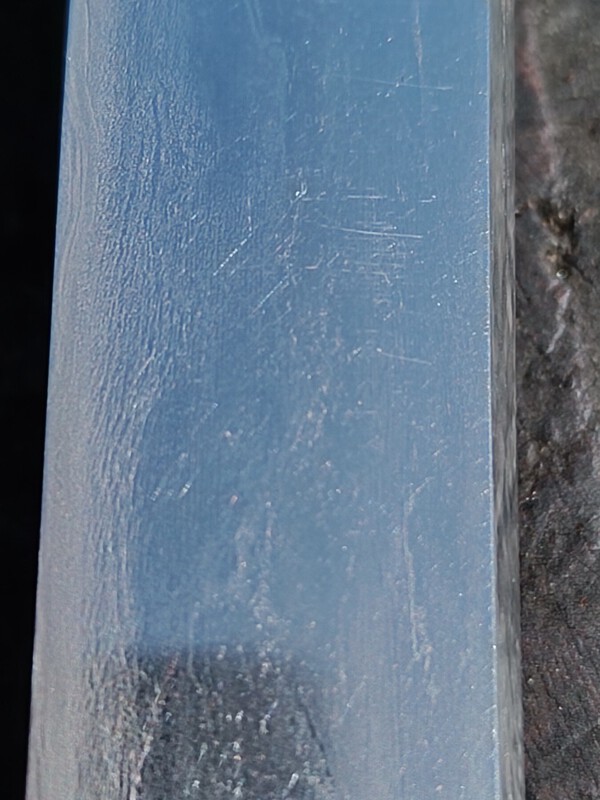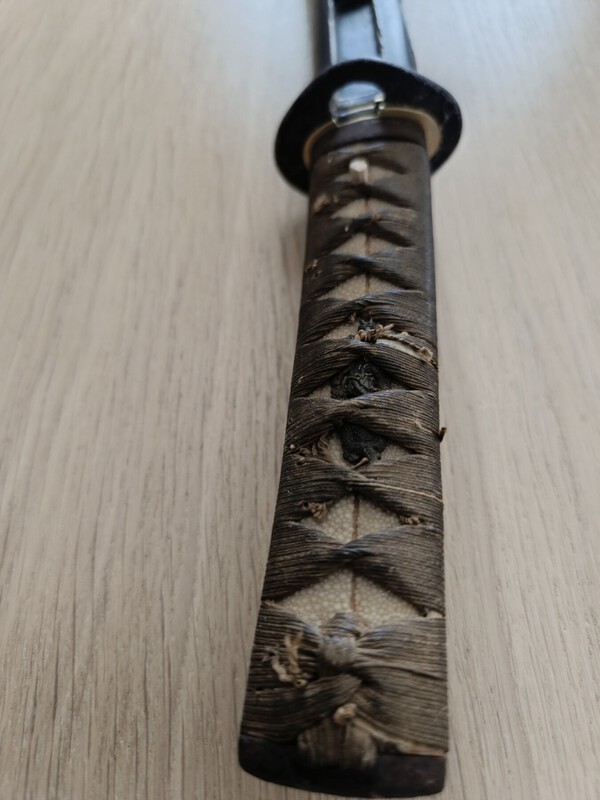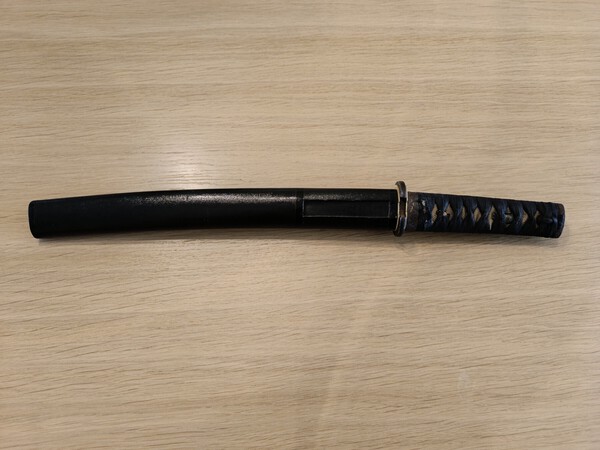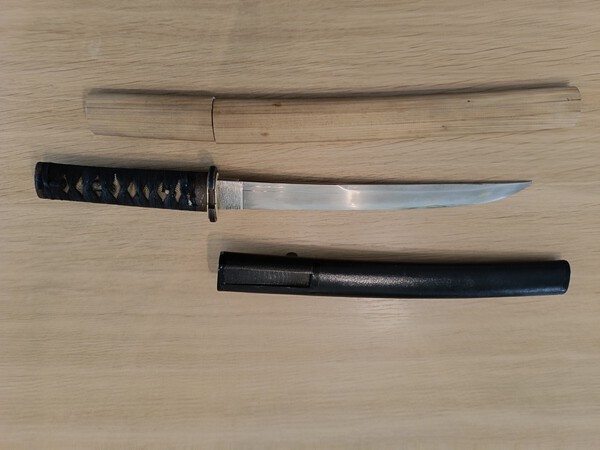
rodrig4
Members-
Posts
141 -
Joined
-
Last visited
About rodrig4
- Birthday 09/22/1954
Contact Methods
-
AIM
improve my knowledge
Profile Information
-
Gender
Male
-
Location:
france.vendée
-
Interests
arts martiaux.
peche.
art japonais.
Profile Fields
-
Name
rodriguez
rodrig4's Achievements
-
wakisashi Signed: 藤 原 貞 廣 Fujiwara Sadahiro
rodrig4 replied to rodrig4's topic in Swords and Edged Weapons
vendu. -
wakisashi Signed: 藤 原 貞 廣 Fujiwara Sadahiro
rodrig4 replied to rodrig4's topic in Swords and Edged Weapons
-
Primary Material: Tamahagane Original/Reproduction: Antique Original Region of Origin: Japan Wakizashi in Koshirae. Signed: 藤原貞廣 Fujiwara Sadahiro. Nagasa 51.6 cm. Sori 1.1 cm.Saki-zori. Motohaba 2.9 cm. Motogasane 0.65 cm. Sakihaba 2.0 cm. Sakigasane 0.5 cm. Nakago 13,5 cm Nagasa 51,5 cm Le kogatana est signé: Inoue Shinkai . Kissaki: chu-kissaki. Mune: Iori-mune. Nakagojiri: Iriyama-gata. Yasurime: Sujikai. Hamon: quelques tobiyaki, mélange de suguha et de toranba (turbulent blade). Jigane: mokume hada. kitae kizu. email address: gr24975@gmail.com tel: 33 06 22 26 23 24 France this wakisashi is sold at the price of 990 euros. RG.
-
Hello. I am only very little familiar with the kanji, but this signature escapes me completely. Could you help me. Sincerely. RG
-
-
Wakizashi in Shirasaya. Signed: 相 州 住 助 広 Soshu Ju Sukehiro. Nagasa 44.4 cm. Sori 1.6 cm. Motohaba 2.7 cm. Motogasane 0.7 cm. Sakihaba 1.9 cm. Sakigasane 0.5 cm Sori: saki-sori. Kissaki: chu-kissaki. Mune: iori-lue. Shinogi: shinogi-zukuri. Nakagojiri: ha-agari-kurijiri. Yasurime: kiri. Nioi deki (匂 出 来) and nie deki(沸 出 来) : nioi and nie deki are present on the hiraji. Hamon: gunome (互 の 目) Hada: mixture of mokume and very tight itame hada. Boshi: kaen. Kitae kizu. Prix 860 euros
-
wakisashi signed of 1477 Bishu Osafune Norimitsu .
rodrig4 replied to rodrig4's topic in Swords and Edged Weapons
price 1000 euros. -
wakisashi signed of 1477 Bishu Osafune Norimitsu .
rodrig4 replied to rodrig4's topic in Swords and Edged Weapons
-
wakisashi signed of 1477 Bishu Osafune Norimitsu .
rodrig4 replied to rodrig4's topic in Swords and Edged Weapons
-
Primary Material :Tamahagane Original/Reproduction :Antique Original Region of Origin :Japan Wakizashi avec Shirasaya et koshirae . Signed: 備 州 長 船 則 光 Bishu Osafune Norimitsu. 文 明 七 年 二 月 日 Bunmei Nananen Nigatsubi. Bunmei 7 per day in February . 文 明 七 年 二 月 日 Seven years must be added to the 1469 era, so 1477. The Bunmei era (文 明) is one of the eras of Japan (年 号, nengō?, lit. "name of the year") after the Ōnin era and before the Chōkyō era. This era covers the period from April 1469 to July 1487[1]. The reigning emperor is Go-Tsuchimikado-tennō (後 土 御 門 天 皇). Nagasa 43.8 cm. Sori 1.1 cm. Motohaba 2.7 cm. Motogasane 0.7 cm. Sakihaba 1.8 cm. Sakigasane 0.5 cm Kissaki: Chu-Kissaki (Medium) Bôshi: maru. Mune: Iori-lue (庵 棟): presence of a central ridge. Forms a more or less acute angle. Style much appreciated after the Koto period[1 sori, 反 り: Torii-zori (華 表 反): the curvature is located at the center of the blade. It is the most used type of sores. Also called kyo, being a reference to the Yamashiro tradition, which mainly used this type of curvature. tsurikomi, 造 込 み: Shinogi-zukuri (鎬 造): appeared after 987, this shape has a curved edge close to the mune, a yokote. It is the most represented form on tachi and katana. It is also called hon-zukuri. Jihada: mokume serré mixed with itame serré. The gorges (hi): kaku-dome. Hisaki-agaru, the greeting ends towards the kissaki. There are essentially two ways: To go beyond the yokote and more or less close to the ko-shinogi, a characteristic called hisaki-agaru (樋 先 上 る) . Groove : bôhi ni soebi (棒 樋 に 添 樋), slightly under the shinogi . Nakagojiri: Ha agari kurijiri. yasurime, 鑢 目: katte sagari. hamon: suguha. nie and nioi: nie deki and nioi deki are present on the hiraji.
-
hello. this signature is: soshu ju sukehiro or sukekane? I lean towards sukekane . Thank you in advance. cordially. RG.
-
hello. Could you confirm that this is the BUNMEI period. Thank you in advance and have a good day. RG
-
-
Description Characteristics of the object Primary Material Tamahagane Original/Reproduction Antique Original Japan Region Signed: 長 広 Nagahiro. Nagasa 29.5 cm. Sori 0.5 cm. Motohaba 2.6 cm. Motogasane 0.3 cm. Sakihaba 0.0 cm. Sakigasane 0.0 cm. Jigane: masame-hada: A masame-hadahada is generally associated with the Yamato tradition and indeed the blades of the first Yamato schools and those made by their branches and later blacksmiths who worked in the Yamato style show indeed in most cases a kind of masame . Hamon: Mix of sunagashi and tobiyaki. Boshi: Ko-maru Ko-maru Boshi: The term ko-maru (小 丸) refers to a boshi with a small rounded kaeri. In the standard ko-maru style, the top curves around the mun , then folds towards it , forming an arc that starts from the yokote (line separating the tip from the rest of the blade) and is parallel to the edge of the kissaki . Nakagojiri: The nakagojiri is ha agari kurijiri. Yasurime: Yasurime is kiri. Mun: The level is iori-ble. Hi (grooves): A popular combination of koshi-bi is gomabashi (護 摩 箸), stylized ritual wands that are essentially a shorter variant of futasuji-ji. Gomabashi are like koshi-bi rare for tachi and katana and especially seen on hira-zukuri tantô or ko-wakizash. ps : the price is 660 euros and I accepete the payal payments.

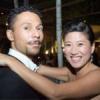

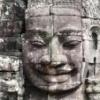
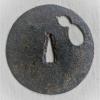
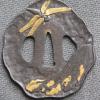

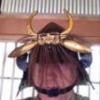
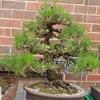


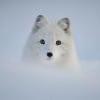


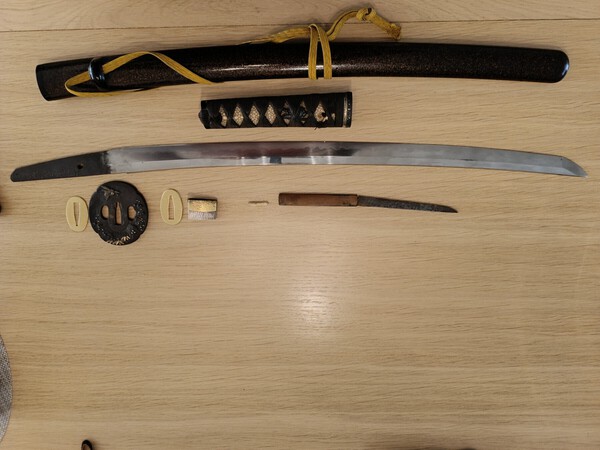
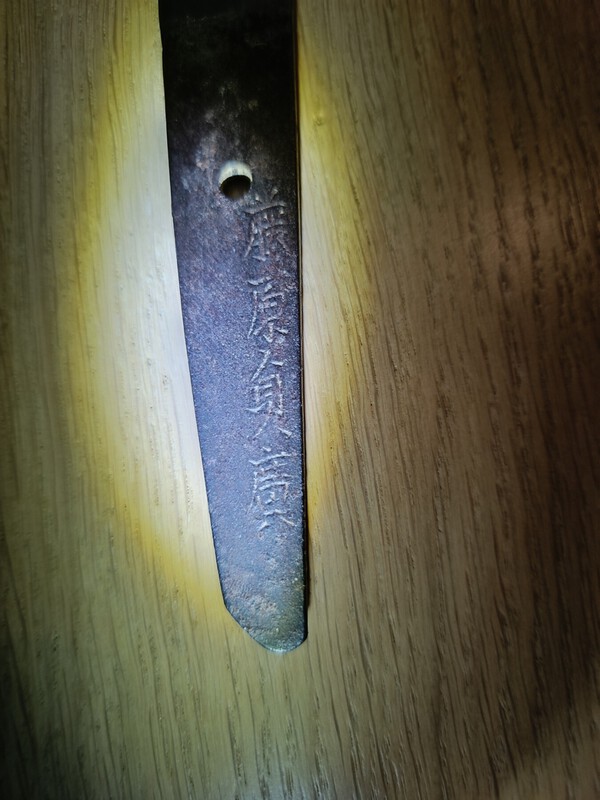



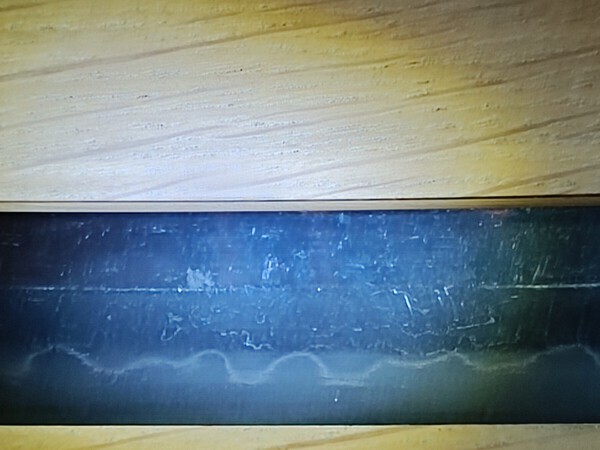



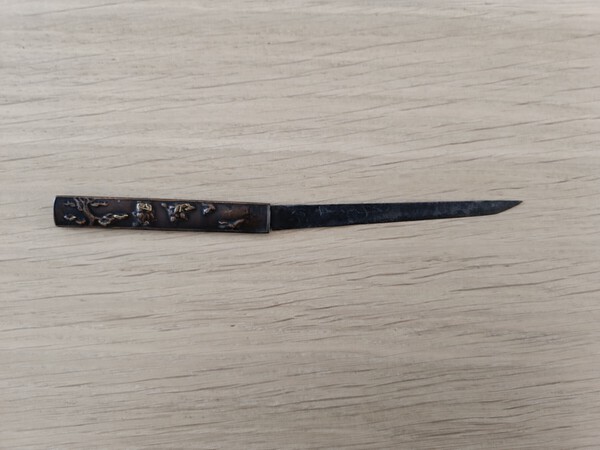




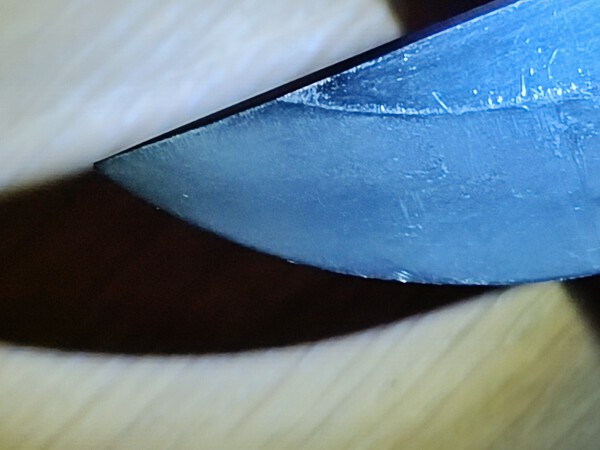
















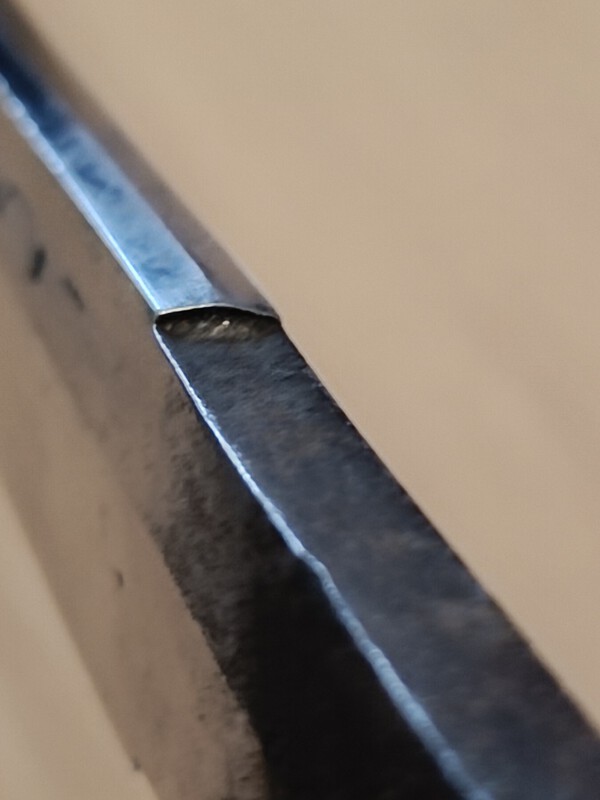



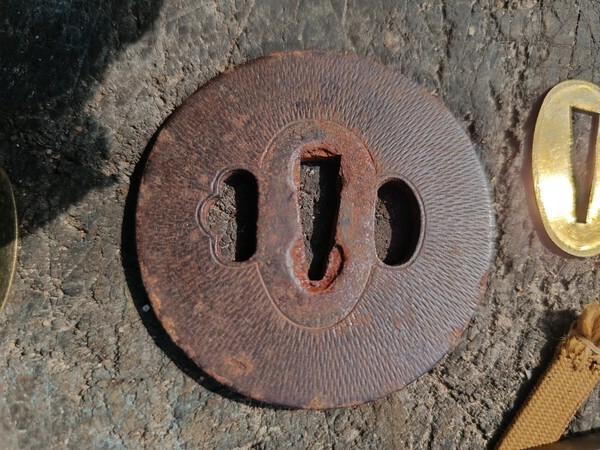

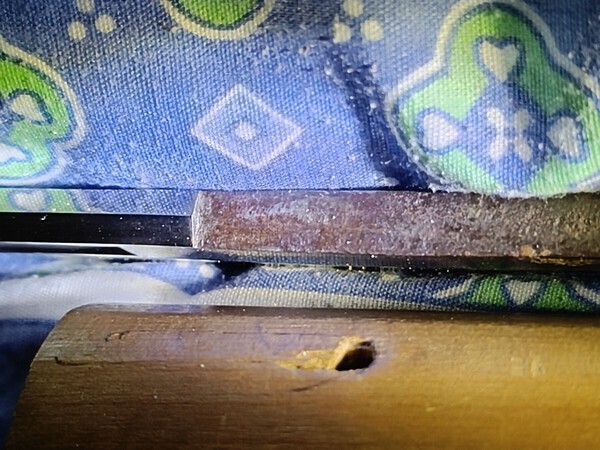









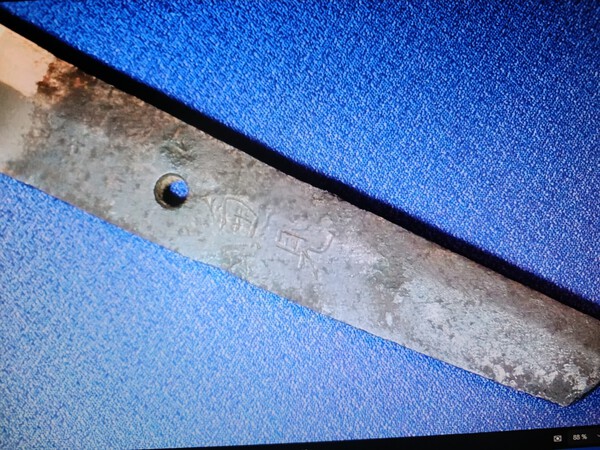



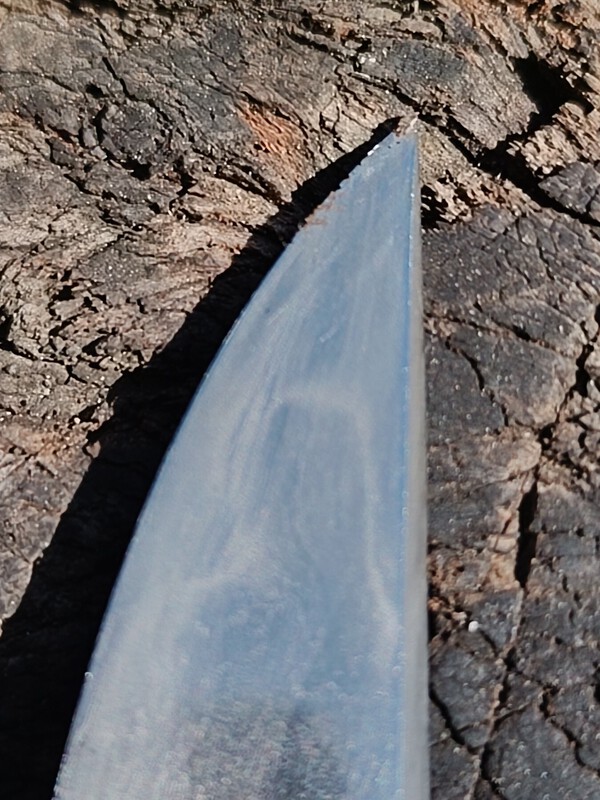
.thumb.jpg.657af07327ca0c1e11320f2cc00885a2.jpg)
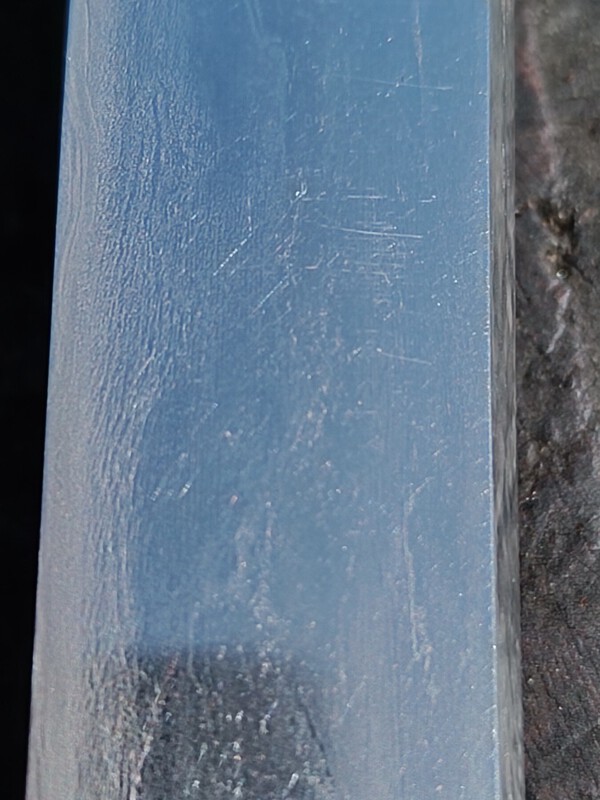
.thumb.jpg.5de71fd689a976f1f6e72cefa9fd509e.jpg)

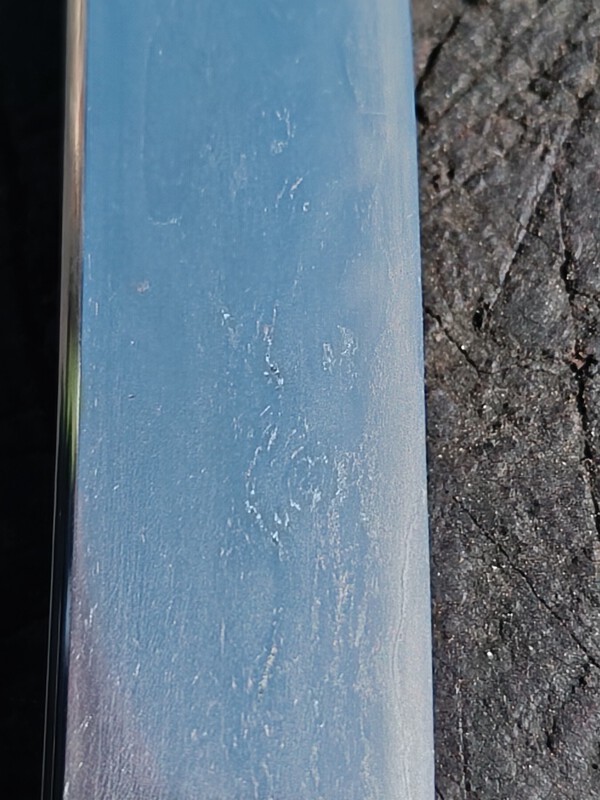
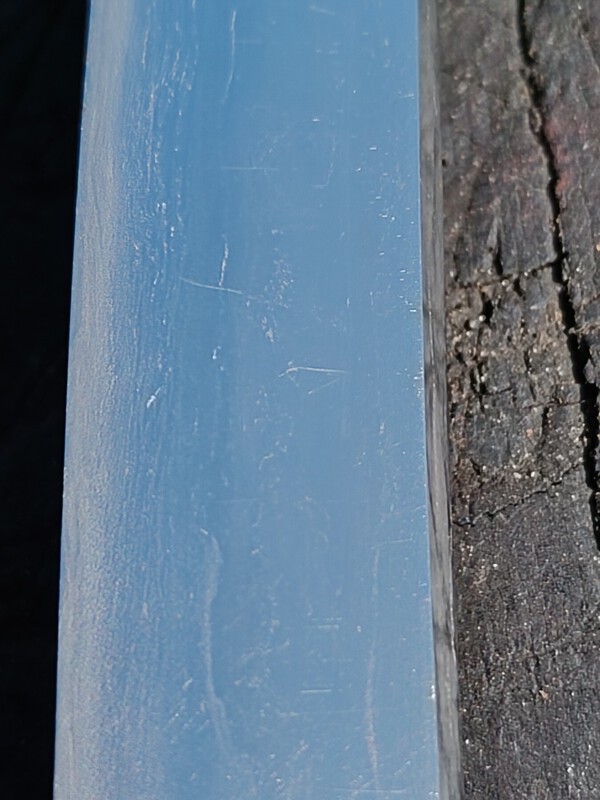
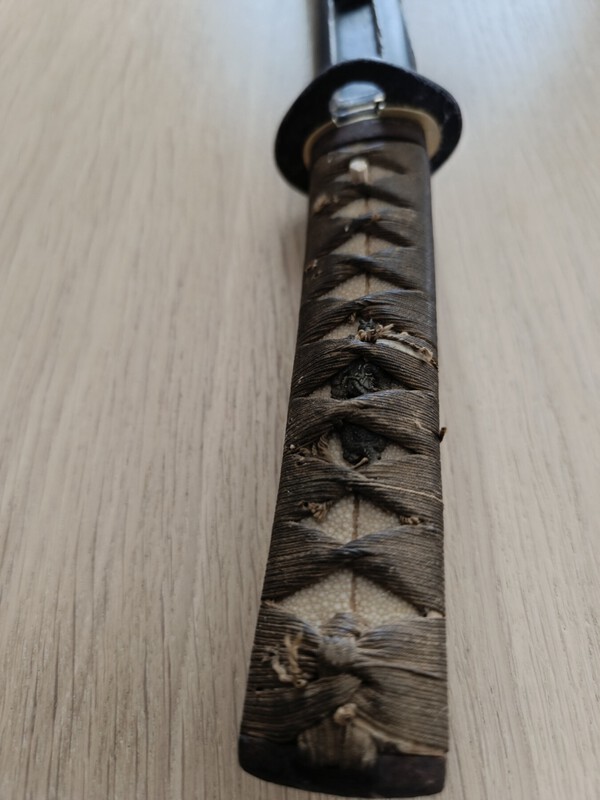


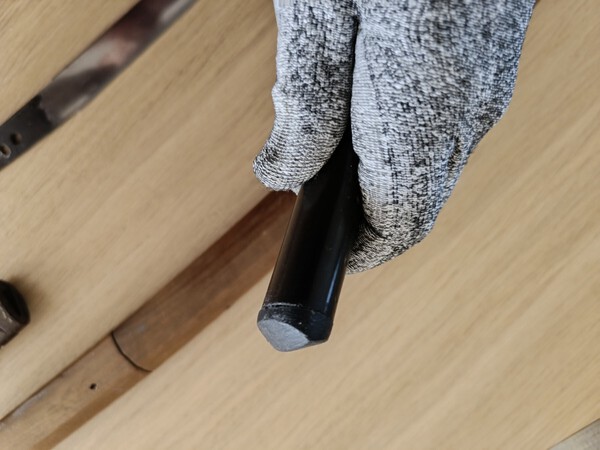
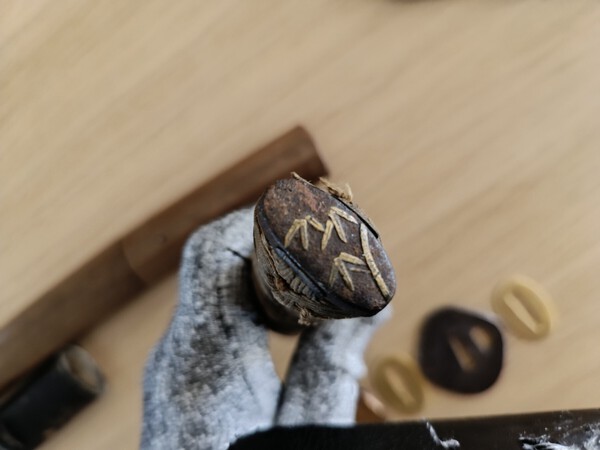


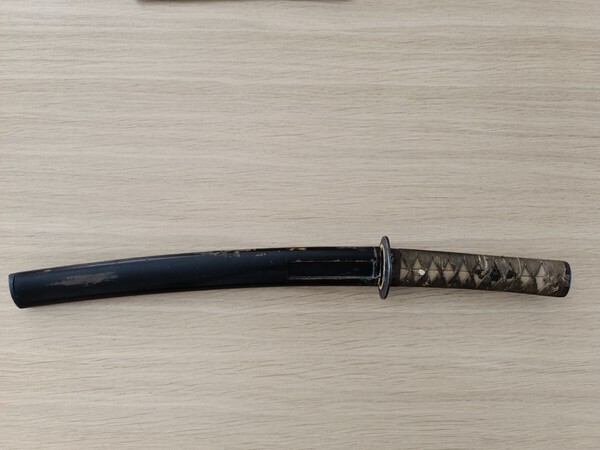
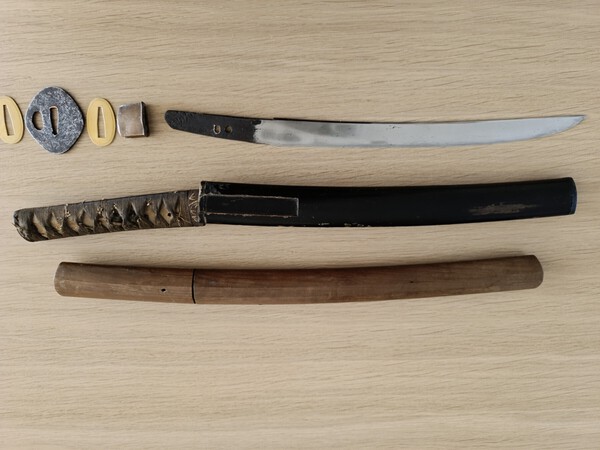
.thumb.jpg.e3bd36e20a7b0f3a7c0fd9addd02286b.jpg)

